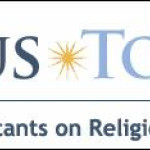- Industry: Religion
- Number of terms: 4401
- Number of blossaries: 0
- Company Profile:
The Ontario Consultants on Religious Tolerance or ORCT attempts to serve the people of the United States and Canada in these four areas: disseminating accurate religious information, exposing religious fraud, hatred and misinformation, disseminating information on dozens of "hot" religious topics, ...
From the Greek words: "Theos" (God) and "cratein" (to rule). A government in which the church and state are unified. Such a union is generally has disastrous effects on human rights, particularly for women and various minorities. This form of government is common among Muslim countries.
Industry:Religion
The concept that Christians can become participants in the life of God, while not sharing in God's essence. The precise definition varies among Christian denominations and theologians. This is based, in part, on 2 Peter 1:4: "Whereby are given unto us exceeding great and precious promises: that by these ye might be partakers of the divine nature..."
Industry:Religion
A Buddhist term in Sanskrit that means the school or way of the elders. It recognizes the Four Noble Truths and the Eightfold Path. Because it emphasizes personal liberation over collective liberation, it is sometimes referred to as the Hinayana or "Lesser Vehicle" school of Buddhism -- a derogatory term. It is found in Sri Lanka and throughout Southern Asia.
Industry:Religion
An early Christian heresy that Jesus is eternally subordinated to God the Father. This contrasts with the traditional Christian view that the Father, Son and Holy Spirit are co-eternal, interdependent, one in substance, and without any form of hierarchy, order or ranking. The heresy has been adopted by many Evangelical Christians in recent decades and used to support the belief that a woman's role is to be submissive to other males -- in particular to her husband.
Industry:Religion
This religion of about 20 million followers was founded by Lao-Tse (604-531 BCE), a contemporary of Confucius, and author of Tao-te-Ching. Taoism started as a combination of psychology and philosophy but evolved into a state religion in 440 CE At that time Lao-Tse became popularly venerated as a deity. Taoism, along with Buddhism and Confucianism, became the three great religions of China. Much of Taoism was destroyed since the Communist victory in 1949; it survives mainly in Taiwan.
Industry:Religion
A concept, supported by numerous biblical examples, in which the responsibility and punishment for sinful actions of one person can be ethically transferred to an innocent person. This is one of the foundational themes taught throughout the Bible, but one that is rarely acknowledged today. A logical corollary of the transferability of sin is that the innocent person can be punished for the behavior that they did not commit. This concept, considered immoral by all world religions, naturally leads to the idea of collective responsibility.
Industry:Religion
A period of seven years of great misery and death when God pours out his hatred on humans. It is described in Revelation 14:9-16.
Industry:Religion
The Westminster Confession of Faith, the Larger Catechism, and the Shorter Catechisms were written by the Westminster Assembly of Divines from 1643 to 1648. They form the theological basis for the Presbyterian and, with some changes, the Congregational denominations. The Baptist Confession of 1689 was largely based on the Westminster standards.
Industry:Religion
An early schismatic group that broke away from the Roman Catholic church. Their history is in doubt; they may have existed as early as the eight century CE. They were viciously persecuted by the Roman Catholic Church from 1209 until 1690. They held many of the beliefs later promoted by Martin Luther and other Protestant reformers.
Industry:Religion
A Jewish head covering traditionally restricted to males. The Code of Jewish Law says it is forbidden to walk four cubits without a head covering.
Industry:Religion
